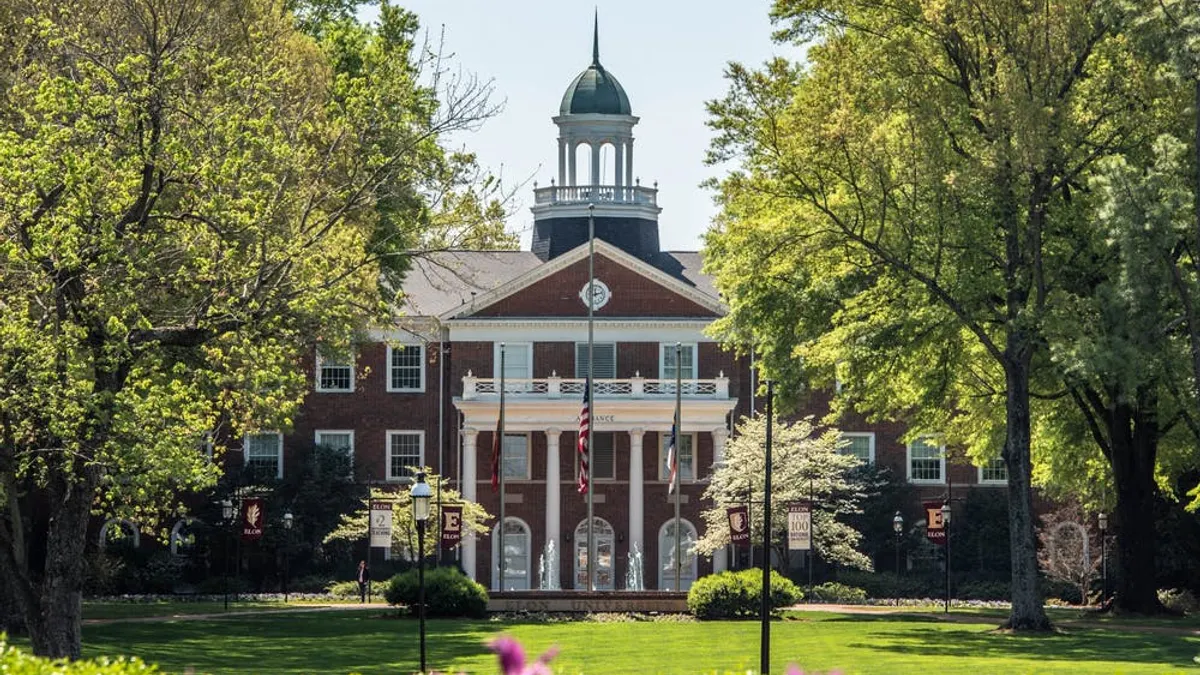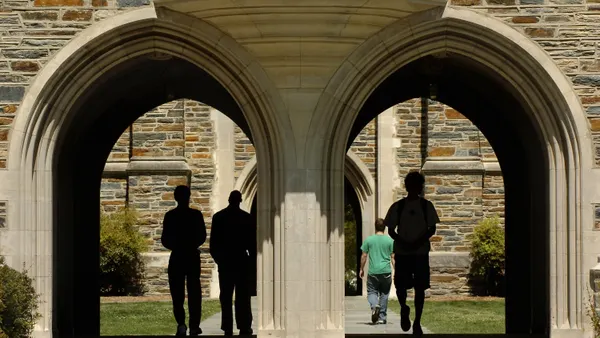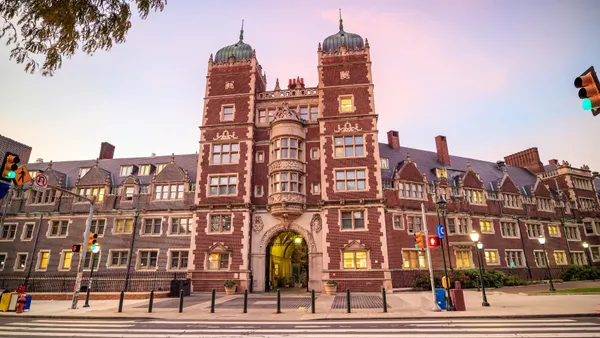Dive Brief:
- Elon University and Queens University of Charlotte plan to merge by summer 2026, the private North Carolina institutions said Tuesday.
- While leaders are still ironing out the details, Elon intends to operate Queens “in partnership" with the latter’s leaders once the merger is complete, according to a joint news release. The universities said more details about the new institution's leadership structure and programming details will be released in early 2026.
- Leaders from Elon and Queens plan a fall listening tour in the Charlotte area to get feedback on the proposed merger from students, faculty, staff, alumni and civic leaders, and they will use the input to help develop a plan for the combination, the institutions said.
Dive Insight:
Elon and Queens, which sit about 115 miles apart, framed their intent to merge as complementary for each institution and a way to help meet the educational needs of the Charlotte area in the coming years.
The combination “creates new advantages of scale, bringing together resources, faculty expertise, research capacity and student services across both universities,” they said in the release.
The trustees of both institutions unanimously supported the proposed merger and will hold a joint meeting next month ahead of planning for integrating the institutions’ operations, the universities said. The boards are expected to finalize the partnership details in November.
Students at both universities will be able to continue their programs uninterrupted, according to a merger FAQ.
Elon is by far the larger institution, and the one on a growth trajectory. Between 2018 and 2023, fall enrollment rose 3.1% to 7,207 students. During that same period, Queens’ fall headcount dropped 27.2% to 1,846.
Of the two institutions, Elon also has deeper financial resources, with assets amounting to $1.3 billion in fiscal 2024 compared to $337.8 million for Queens.
Queens’ budget has suffered from falling tuition revenues and a decline in government grants and contracts, in addition to rising expenses. In 2024, it reported a total deficit of $8.7 million. Meanwhile, Elon logged a hefty surplus of $70.4 million during the same year.
But in the FAQ, the universities said their plan to merge did not stem from financial distress and is "not driven by crisis."
Instead, they pointed to the workforce needs of the Charlotte area, noting growing demand for graduate degrees as well as a growing shortage of nurse practitioners, physician assistants and lawyers in the area.
The merger would “accelerate new programs across vital industries” and expand access to Elon’s law school in Charlotte — the only one in the city today, the institutions said.
Queens has deep roots in Charlotte. It was founded in 1857, initially as a women’s college before becoming fully coed in the 1980s. Elon was founded in the city of the same name in 1889.
“Queens has long been a leader in undergraduate and graduate education, deeply connected to Charlotte’s civic and business community and committed to shaping the region and nation through thought leadership,” Jesse Cureton, who took over as acting president of Queens this summer, said in a statement.
He added that the merger with Elon “ensures continuity for our students and faculty while creating bold new opportunities to expand our impact and strengthen Charlotte’s role as a hub for higher education.”
Elon President Connie Ledoux Book said that the combination “unites two institutions deeply committed to student success, and together, we will expand relevant, high-impact programs that connect academic excellence with real-world opportunity in service to the Charlotte region.”













